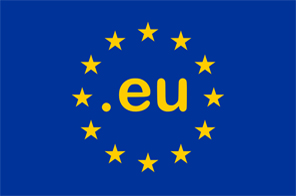EU finance ministers talk help for Greece
BRUSSELS: Eurozone finance ministers will discuss Monday whether to guarantee a financial lifeline to Greece if it can't borrow from wary bond markets and to check that its austerity measures are going far enough to reduce its massive debt load.
Greece says it is only looking for "political" support — a pledge of aid should it be faced with default — instead of an immediate cash handout.
It needs to borrow euro54 billion ($74 billion) this year — euro20 billion of that in April and May — to plug a yawning gap between revenue and expenses, and has been forced to offer high interest rates to get investors to lend it money.
Eurozone nations have promised to help if needed, but have demanded that Greece make big budget cuts before any bailout. Last month they set Athens a deadline of March 16 to toughen its austerity program, warning that they would order cuts if Greece didn't make them itself.
Greece duly announced more budget reductions to save another euro4.8 billion this year including public sector wage cuts that angered unions and sparked two nationwide strikes last week. The government concede that the cutbacks will worsen the economic recession this year.
Greek Prime Minister George Papandreou has warned that he will turn to the International Monetary Fund if eurozone nations don't follow through a vague pledge to help the country.
He has so far won support in fighting financial market speculation on the country's borrowings — French, German and Spanish leaders have called for an EU crackdown on credit default swaps on bonds, which insure traders against the risk of a country's default.
Markets are still not convinced that Greece's debt is a good investment without a bailout from the EU. The spread, or difference, between 10-year German and Greek bonds remained around 3 percentage points on Monday.
German Finance Minister Wolfgang Schaeuble talked down any immediate announcement of concrete details of a Greek rescue in a Sunday interview with Bild newspaper, where he said there was currently "no reason to make any decisions about financial aid."
EU officials said Saturday that there are a set of options to help Greece overcome its financial crisis, but that Athens would have to arrange for possible loan guarantees with each individual government. Berlin has so far bristled at the idea of extending aid to Greece.
"There are intensive consultations on a bilateral basis in case that Greece needs support for a special loan guarantee that a number of countries could come to provide," said Cristina Gallach, spokeswoman for the Spanish presidency of the 27-nation EU.
Gallach emphasized that Athens has said it would not need any such help, but that the EU must be ready "just in case Greece comes and says we need a bailout."
Schaeuble has called for a bigger solution such as a European Monetary Fund, a bailout fund for eurozone nations in trouble and tougher threats for countries that don't stick to EU limits on debt and deficit — including being kicked out of the currency union.
Other eurozone nations don't seem to share his zeal — French Finance Minister Christine Lagarde told the Financial Times on Monday that it wasn't a priority and the EU should show "a bit of creativity and innovation" to beef up current budget monitoring tools.






